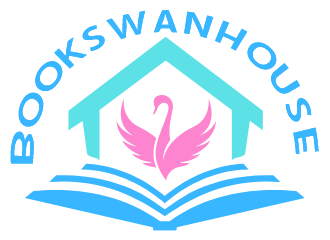Academic writing can be a difficult task, especially when it comes to the literature review section. Writing an effective literature review is a key component of crafting an essay that will earn you a good grade and help you to expand your knowledge of a given subject. Understanding what is required to craft an effective literature review can ensure a successful standard of work.
1. Unlocking the Secrets of an Effective Literature Review
Literature reviews can be used in a variety of ways. Whether it’s a summary of key ideas in any given field, a research paper or a dissertation, reviewing existing literature is key to processing and expanding knowledge. is a process that requires dedication, critical thinking, and an eye for detail.
Organize Your Research
The first step to writing a successful literature review is to develop an effective organization system. From books and articles to any notes you may have taken, streamlining your available resources will save time and help to ensure a comprehensive review.
Analyze the Literature
Once your research is gathered and organized, it’s time to analyze what each source has to offer. Consider the objectivity, accuracy, and relevance of each piece of information and how it pertains to your topic. Record any important quotes or key takeaways in your notes for easy reference.
Compare & Contrast
The next step to crafting a great literature review is to uncover the connections between your research materials. As your research starts to come together, you may even start to see new points of view emerge. Start taking notes on any major similarities and differences you uncover:
- Compare & contrast the overall themes of different documents or sources.
- Note how ideas or data points blend across source documents.
- Note any discrepancies or pieces of conflicting information.
It’s important to remain impartial when analyzing your research – remain thoughtful and inquisitive as you assess each piece of material.
2. Finely Tuning Your Research Criteria
When it comes to narrowing down your research criteria, the finer the tune, the better the results. Using more precise search terms and queries in your research mission will help you get the most accurate, up-to-date results. Here are some tips for fine-tuning your research criteria:
- Utilize Boolean Operators – Boolean operators allow you to combine words and phrases together to create more complex searches. Using these operators can be helpful in narrowing down the search and getting results that are closer to what you’re looking for.
- Got Geography? – If you’re researching something specific to a particular area, narrow the scope of your search to that particular geography. This will help you avoid getting irrelevant results from outside the area or region you’re researching.
- Date It – When conducting research, you need to know what the latest information is. Take the time to narrow down the timeframe you’re researching, as this will help you hone in on the relevant information.
When the research criteria is finely tuned, chances are you’ll get more useful, relevant results to analyze. The time spent tweaking your queries and search terms will be well worth it, as you’ll then have a powerful toolbox of relevant search queries to work with.
When it comes to research, the finer the tune, the better the results. Take the time to conduct research with precise queries and terms, and you’ll be much more likely to land on relevant and timely information.
3. Establishing Scholarly Connections
Networking with other experts in your field is essential, if you want to push the boundaries of your work. Other professionals can offer vital feedback on your work, open new doors of opportunity to collaborate and help you stay ahead of the pack.
First step is finding people to learn, share and engage with. There are plenty of tools and resources to help you get started. Local seminars, conferences and national meetings are a great way to meet people and learn more about current research. Don’t forget to check social media platforms like Twitter and LinkedIn for ongoing conversations.
- Maintain your presence – Dedicate a few minutes each day to check in on industry news and be active with your online presence. Create an online journal and post about your research and opinions. The more you put yourself out there, the more you’ll get noticed.
- Meet in person – Setting up meetings and attending conferences is a great way to connect with like-minded people. With advances in technology, it’s now easier than ever to stay connected with individuals, or even join global chat rooms with industry related topics.
- Build relationships – Get to know people within your industry. Exchange ideas, share scientific literature and discuss your own research. Developing personal connections with colleagues over time can open up doors of opportunity that you may have missed out on.
Academic connections can make the crucial difference between stagnating knowledge and fresh perspectives. There are plenty of ways to connect and engage with fellow academics, you just need to take the initiative and start building your network.
4. Crafting Your Unique Perspective
To stand out from the crowd, it’s essential to develop a unique perspective. A distinct set of beliefs that shape the way you view the world, the decisions you make, and the positions you take. This is the icing on the cake, and it’s essential to stand out. Here are four tips to help you get started:
- Draw from your experiences. Finding your unique perspective starts with understanding you. Look inside for insights about the world around you and the experiences that have shaped you. Make a list of the events that have most impacted you and use them to craft a perspective.
- Listen more than you speak. To truly craft an original perspective, you need to access the range of perceptions and interpretations out there. That means really listening to a variety of voices. Have conversations with a broad range of people. Follow conversations on social media. Listen to podcasts. All of this will help you access more information and form an original worldview.
- Don’t be afraid to be bold. It’s essential to be confident as you lean into developing your own perspective. Don’t be afraid to challenge conventions or stand against the grain. Be comfortable taking risks and embracing discomfort. This leads to your best and most meaningful work.
- Connect the dots. Connecting the dots helps you craft a unique and more holistic perspective. Include moments from both your personal and professional life, as well as from your local community, the national landscape, and the world at large. This will give you a full picture and help you form a powerful perspective.
And of course, it takes time and practice. Your unique perspective won’t arrive overnight. Take the time to read, think, reflect, and talk. The best perspective will come from understanding your beliefs, challenges, and triumphs. Have patience and dig deep.
Every great professional has a unique point of view. It’s often their secret sauce and what sets them apart. While you’re embarking on your career journey, it’s important to build a perspective that will ensure you stand out from the crowd. By putting in the time and effort to craft your own view of the world, you’re taking a massive step in the right direction.
Going through these steps to effectively write a literature review should give you a better understanding of the power of this important component of academic writing. Remember, not only is it great practice for uncovering and analyzing material, understanding key sources, and some tips on how to put it all together – it’s also the perfect way to make a lasting impression on your professor when it comes time to turn your paper in!
—
Writing a literature review may seem daunting at first, but taking the time to do it right will certainly pay off. A good literature review can spark the interest of readers and help convey your points in a clear, effective manner. With the help of these tips, you’ll be able to craft an impressive literature review that will leave a lasting impression on your academic peers.


